
World
11:33, 11-Oct-2017
Are referendums a ‘misuse’ of the political system?
CGTN
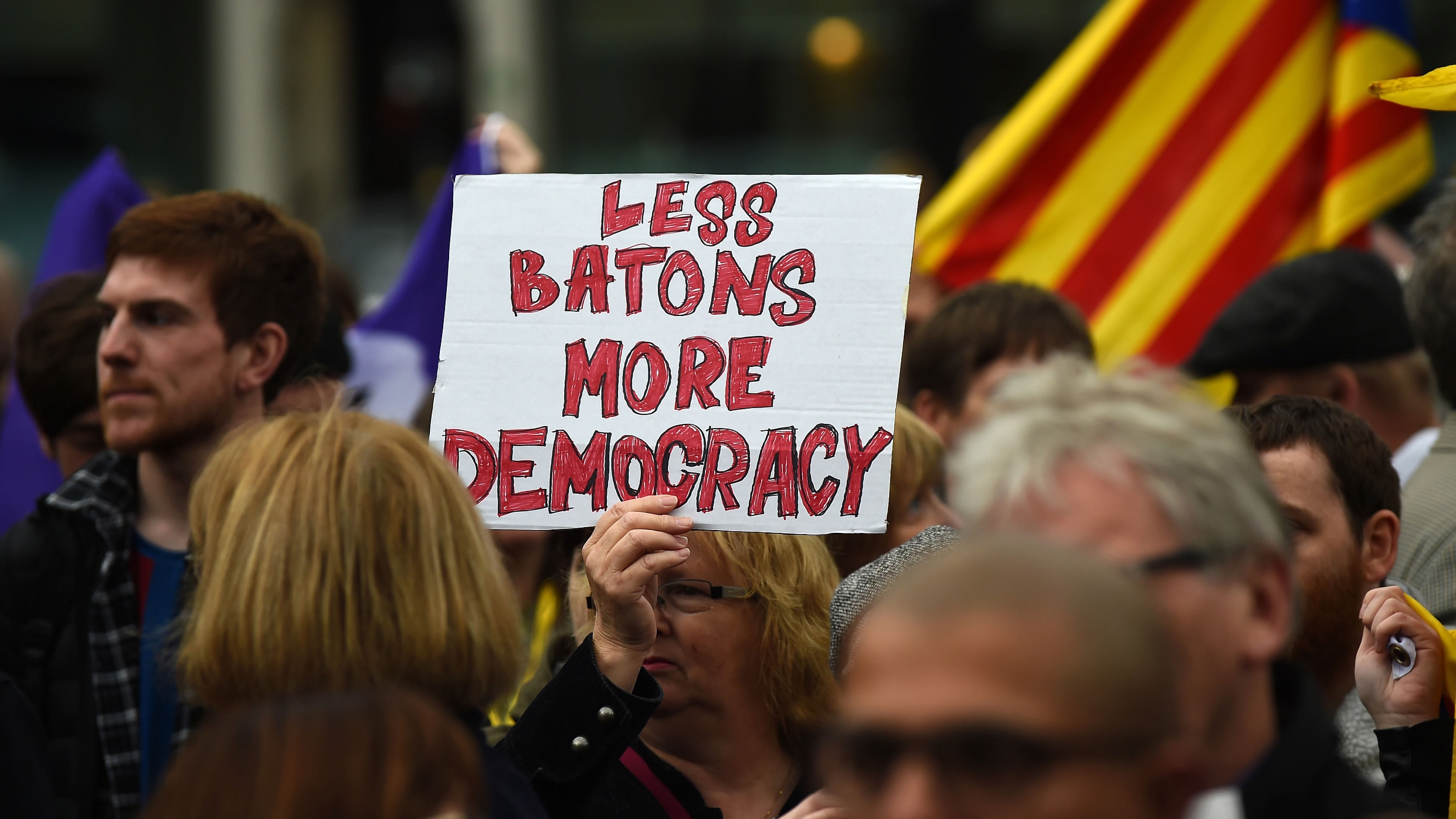
By CGTN’s The Point
“Referenda are very, very, very good for populists,” said Hans Martens, a Copenhagen-based senior adviser to the European Policy Center. “And this is one way you can mislead the public opinion.”
Speaking on CGTN’s The Point and echoing Martens, Ding Yifan, a senior fellow with an institute under China’s Development Research Center of the State Council, said that referendums can lead to “a lot of mistakes in people’s perception of democracy.”
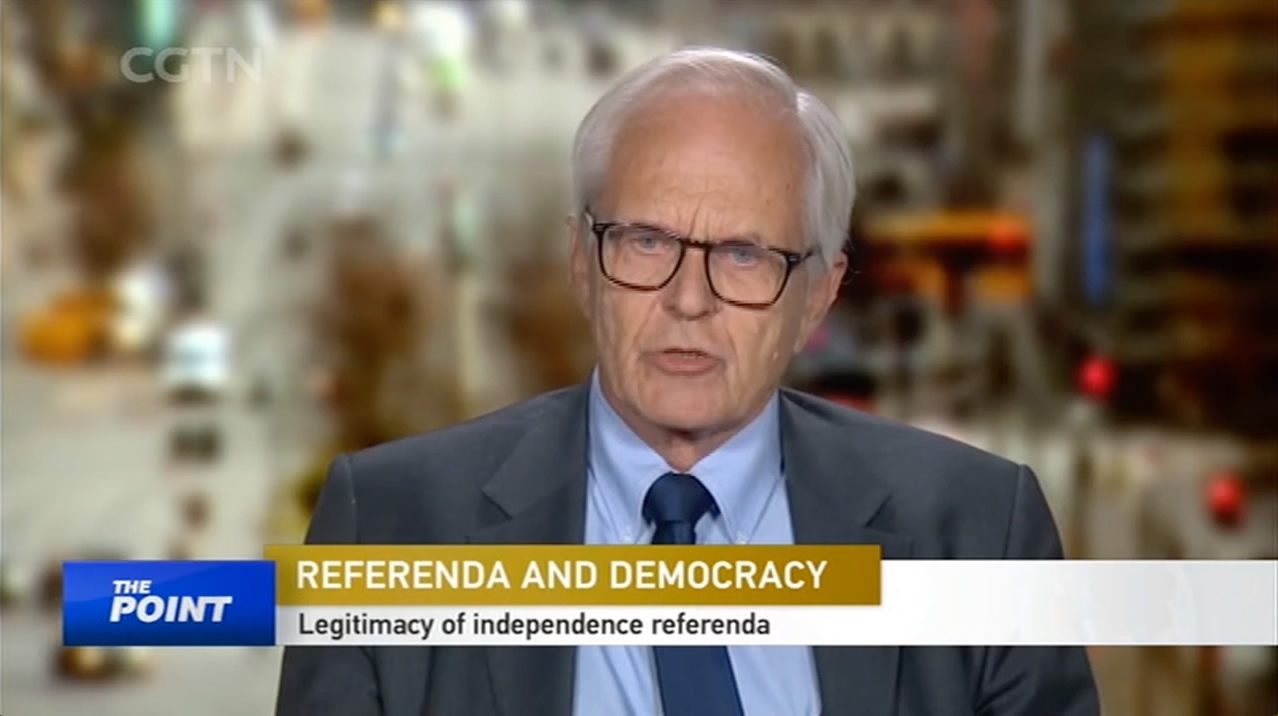
Hans Martens on CGTN's The Point /CGTN Screenshot
Hans Martens on CGTN's The Point /CGTN Screenshot
The comments come after a referendum on October 1 which saw Catalonia vote overwhelmingly to break away from Spain, a successful referendum but one which Madrid dismissed as illegal.
That in turn follows controversial referendums in Iraq (for Kurdish independence) and the United Kingdom (to withdraw the country from the European Union) which may have delivered successful results for the organizers, but which have also led to division and in some cases violence.
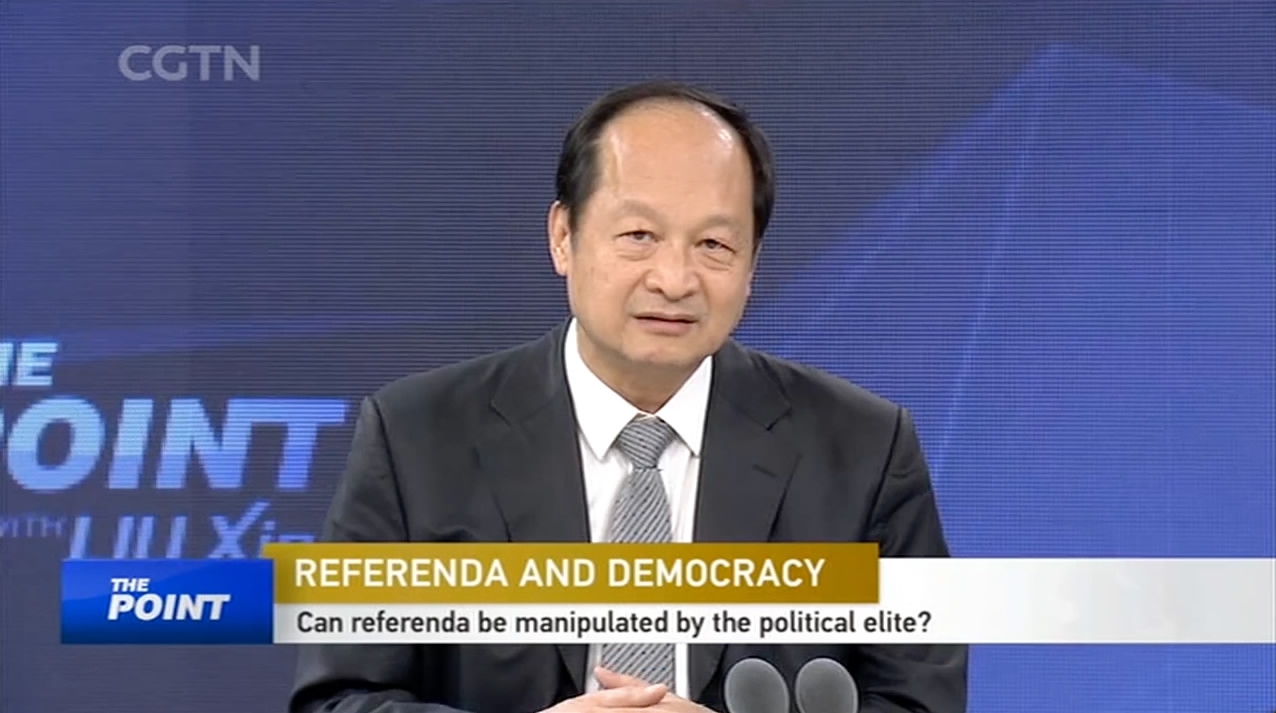
Ding Yifan on CGTN's The Point /CGTN Screenshot
Ding Yifan on CGTN's The Point /CGTN Screenshot
Ding warned that the popularity of referendums in Europe could lead to a split on the continent.
“With the rise of populists in every country in Europe, referenda could be a very, very bad instrument for politicians to speed the process of bringing Europe again into chaos,” he warned.
Fraser Cameron, director of the EU-Asia Center, said that referendums are just “something for the snap of the moment.”
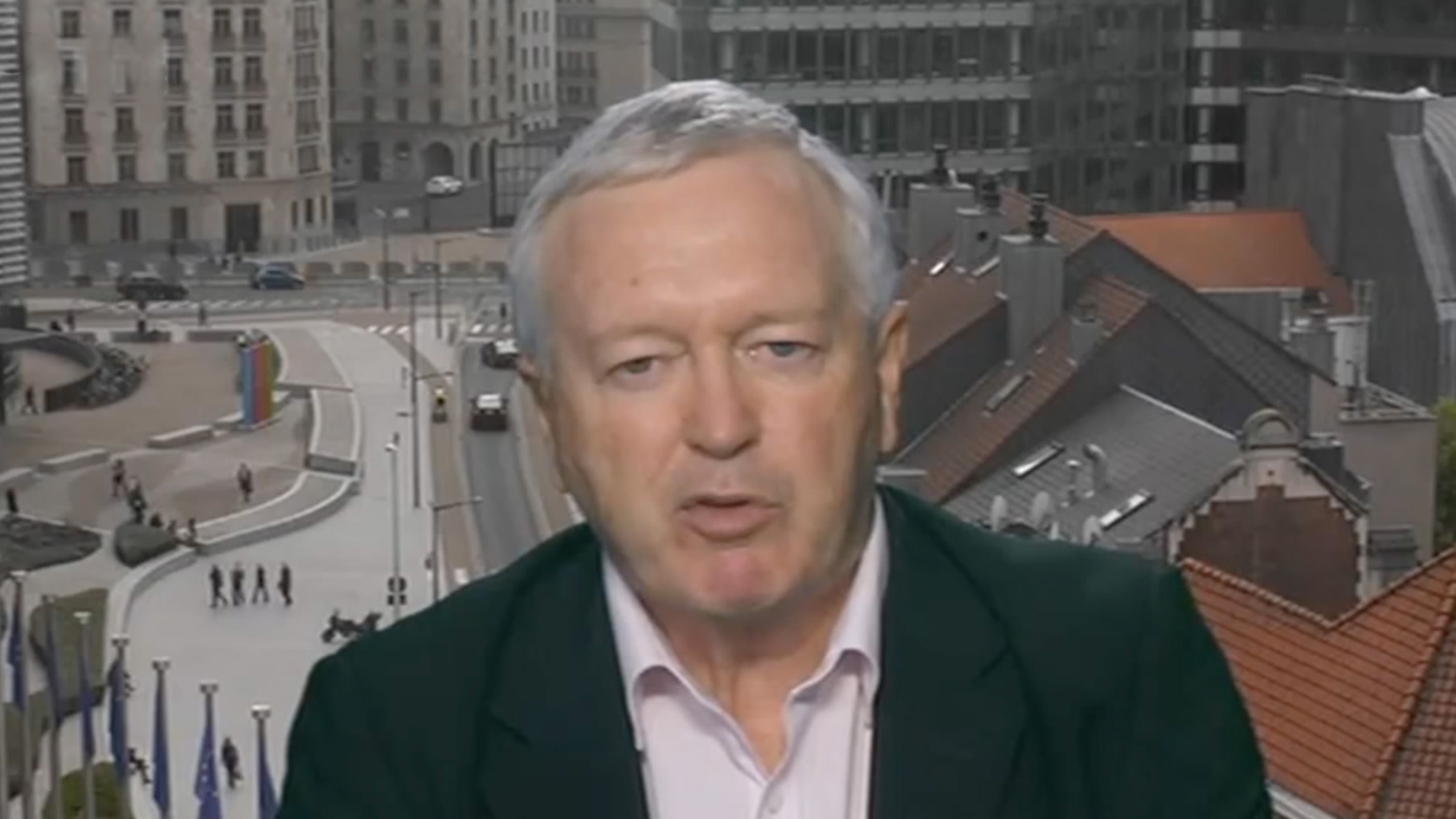
“It’s nothing to do with the question on the ballot box, it’s about the popularity of the government,” he said. “It’s really a dangerous and stupid way to carry out political decisions.”
Martens noted that a referendum is a kind of “reserve in most of the European countries,” but it should not be the supreme form for democracy as representative democracy is a better system.
However, Cameron implied that people are likely to want to have a “mix of representative democracy and referenda,” citing Brexit as an example.
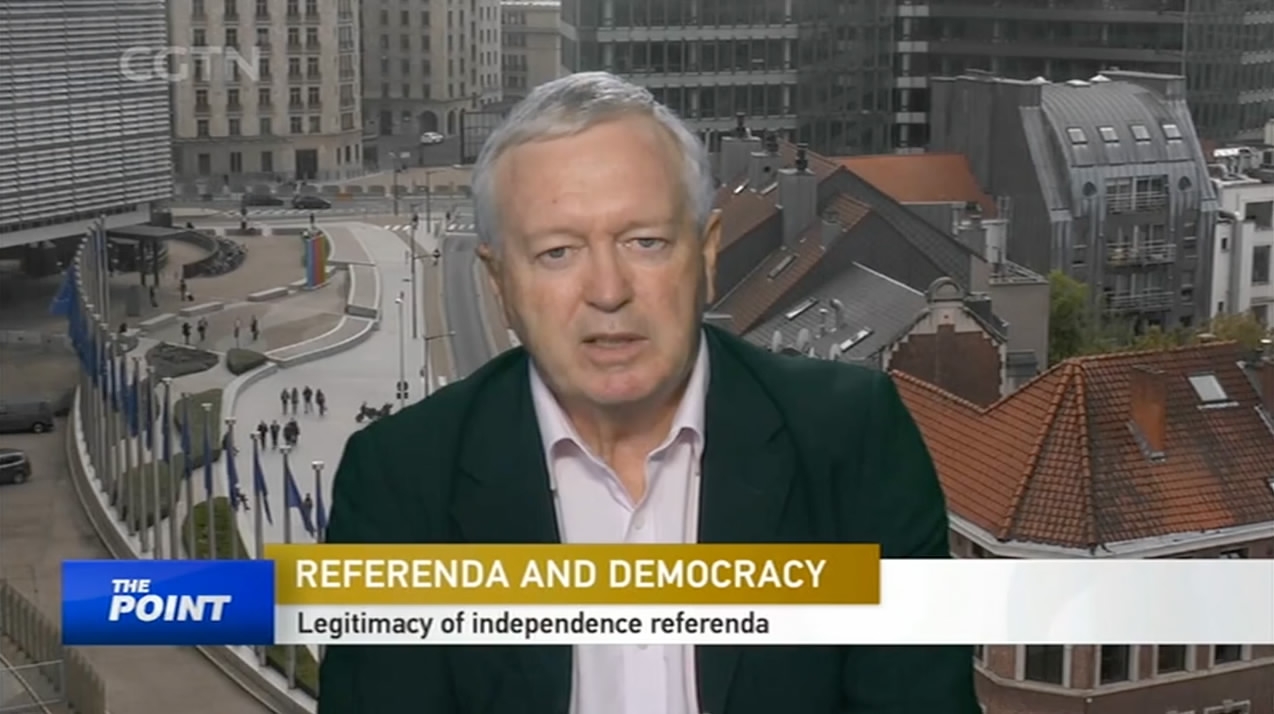
Fraser Cameron on CGTN's The Point /CGTN Screenshot
Fraser Cameron on CGTN's The Point /CGTN Screenshot
Ding referred to the consultative democracy as the Chinese way of dealing with negotiations between grassroots society and political leaders in terms of the country’s stability and integration, but did say that European politicians would likely “not be tempted” by Chinese-style democracy.
“They think that the decision is too hard to make,” Ding said.
The Point with Liu Xin is a 30-minute current affairs program on CGTN. It airs weekdays at 9.30 p.m. BJT (1330GMT), with rebroadcasts at 5.30 a.m. (2130GMT) and 10.30 a.m. (0230GMT).
2km

SITEMAP
Copyright © 2018 CGTN. Beijing ICP prepared NO.16065310-3
Copyright © 2018 CGTN. Beijing ICP prepared NO.16065310-3